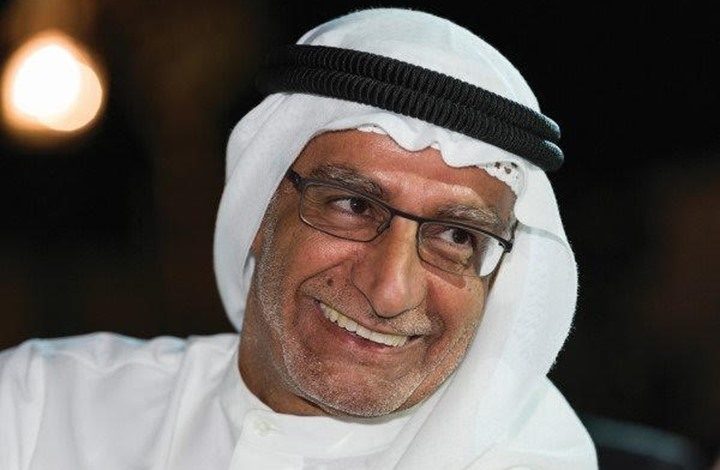Last week, the former adviser said Qatar “won” the blockade after the signing of the Al Ula Declaration.
Dubai-based professor of politics and former UAE government advisor Abdulkhaleq Abdulla said he is ready to visit Qatar “soon” and appear on its leading broadcaster Al Jazeera if journalist Ghada Oueiss drops cases files against the Saudi and Emirati crown princes.
“I will visit Doha on the nearest Emirates flight to check on family and meet colleagues,” he said in a tweet on Tuesday, responding to Al Jazeera presenter and journalist Ghada Oueiss.
In the same tweet, responding to Oueiss’s question of whether or not he will appear as her guest again, Abdulla confirmed he is ready to be on Al Jazeera.
“There is nothing wrong with appearing as a guest on Al Jazeera in an honest dialogue to overcome the bitterness of the boycott and the sediments of estrangement and hold the ‘bad guys’ accountable,” Abdulla said.
سأزور الدوحة على أقرب رحلة لطيران الإمارات للاطمئنان على الأهل ولقاء الزملاء لتأكد الأخوة وتجديد المودة ولا بأس من ظهور شخصي ضيفا بالجزيرة في حوار صريح لتجاوز مرارات المقاطعة وترسبات القطيعة ومحاسبة "الأشرار" كل ذلك يتطلب منك مبادرة لإسقاط دعاوي من مخلفات زمن ما قبل المصالحة https://t.co/34qiNWU9es
— Abdulkhaleq Abdulla (@Abdulkhaleq_UAE) January 12, 2021
However, “all this requires you to take an initiative to drop claims left over from the pre-reconciliation period,” he told the Doha-based presenter.
The former UAE adviser was referring to cases filed by Oueiss in December against Saudi Arabia’s Crown Prince Mohammed bin Salman and UAE’s Crown Prince Mohammed Bin Zayed which accuse the two royals of targeting the journalist in a hack and leak operation.
According to Washington-based news website, The Hill, Oueiss filed the lawsuit in the Southern District of Florida, alleging that both crown princes were behind a group of other Saudi and UAE officials, as well as American citizens, behind the operation.
The online attacks on her intensified after she began reporting on the killing of Khashoggi in Istanbul in 2018, she said.
Last year, in a Washington Post op-ed, Ouiess said the hacking operation involved stealing pictures of her in a swimsuit that were then doctored to give the false impression that she was naked.
Oueiss also added that some of the pictures were retweeted over 40,000 times within hours by social media accounts that overtly displayed their support to the Saudi and UAE crown princes.
Before the blockade, Abdulla appeared as a guest on Oueiss’ show ‘What’s Behind the News’ on Al Jazeera, but has not made an appearance since.
Read also: Ex-adviser to UAE says ‘Qatar won’ after end to three-year dispute
Last week, Abdulla told the Financial Times in an interview that Qatar “won” the blockade after the announcement of the restoration of ties between Doha and the blockading quartet, which was solidied following the signing of the Al Ula Declaration.
“The cost of fighting was too high — there is a realisation now that this is the black sheep of the family and we just have to put up with it,” he added. “These have been the worst three-and-a-half years in the history of the GCC [Gulf Cooperation Council]”.
After the blockade was first announced in June 2017, Saudi Arabia, United Arab Emirates, Bahrain and Egypt announced a list of 13 demands to lift the illegal siege.
As part of the demands, they called for shutting down Qatar-based international media network Al Jazeera, cutting off all ties with Iran and severing “all ties to terrorist organisations.”
Commenting on the list of demands this week, the UAE’s Minister of State for Foreign Affairs Anwar Gargash admitted they were a “maximalist negotiating point” designed to apply pressure on Doha.
“This is something that we have always said – that the 13 demands, at the time, were considered, what I would call, a maximalist negotiating position,” the UAE official said on CNN after ties between the four countries and Qatar were restored.
Qatar categorically rejected the list of demands and accused the quartet of attempting to threaten Doha’s sovereignty.
Three years later, the Al-Ula Declaration now stipulates all signatories of the deal will not interfere in the internal and external affairs of other nations, nor will they pose a threat to their stability.
Follow Doha News on Twitter, Instagram, Facebook and Youtube







